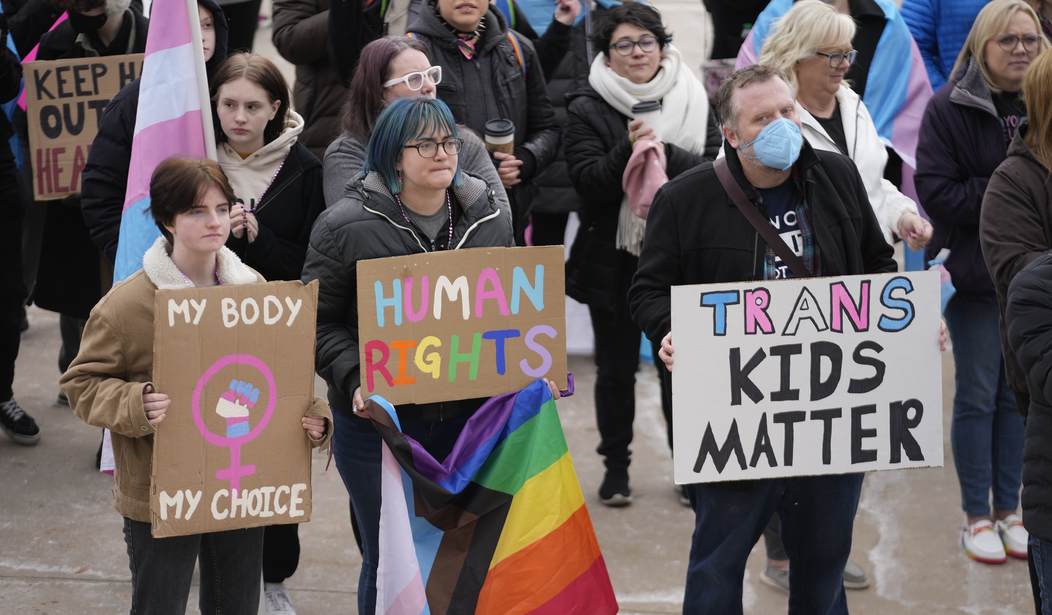Dr. Susan Bradley, a Canadian psychiatrist and expert in child gender dysphoria treatment, recently spoke out against the widely adopted model of affirming children’s transgender identities.
Bradley was a pioneer in the field, having started a pediatric gender clinic in 1975 to treat children with gender dysphoria. The clinic offered a therapy-based approach to resolve children’s discomfort with their bodies and biological sex, and most patients successfully outgrew their gender dysphoria. But things changed in 2005 when the clinic started prescribing puberty blockers to alleviate the distress of gender-dysphoric children. This model of “affirming” children’s gender dysphoria, rather than treating it, has since become the standard practice of medical establishments worldwide, particularly in the United States, and it’s not a good thing. Some are recognizing the problem, though. Last year, the Tavistock Clinic, the only transgender clinic in England, closed due to concerns about surgeries being performed without consideration for children’s mental health first.
In an interview with The Daily Caller, Bradley shared her concerns about the affirmation model and expressed regret and concern over the prescribing of puberty blockers for gender dysphoria. In the interview, she stated that the use of these drugs can cement a child’s sense of confusion and may have dangerous side effects.
For our VIP Subscribers: Skyrocketing Gender Dysphoria in Children Is Unnatural
“We were wrong,” she said. “They’re not as irreversible as we always thought, and they have longer term effects on kids’ growth and development, including making them sterile and quite a number of things affecting their bone growth.”
Before the widespread implementation of the “gender affirmation” approach, most children with gender dysphoria grew out of it and came to accept their bodies and gender. And as even the New York Times has acknowledged, some doctors are concerned that puberty blockers may solidify a child’s temporary gender confusion, making it permanent.
Last summer, the FDA formally acknowledged the dangers of puberty blockers because they can cause pseudotumor cerebri, also known as idiopathic intracranial hypertension, which can cause brain swelling, severe headaches, nausea, double vision, and even permanent vision loss.
Bradley explained that her opinions on puberty blockers have changed over time. “We thought that it was relatively safe, and endocrinologists said they’re reversible, and that we didn’t have to worry about it. I had this skepticism in the back of my mind all the time that maybe we were actually colluding and not helping them. And I think that’s proven correct in that, once these kids get started at any age on puberty blockers, nearly all of them continue to want to go to cross sex hormones,” Bradley said.
While the United States still seems to be aggressively pushing transgenderism on children, many European countries have started to recognize the dangers, including the United Kingdom, Finland, France, Sweden, and Norway. These countries have dialed back their promotion of transgender treatments for children, choosing instead to emphasize the importance of psychological intervention as the first line of treatment — the model that worked so successfully before.
Bradley, as a pioneer in the field of gender dysphoria in children, is a voice that should be listened to.
“When a professional who might have been expected to align with one side (affirmative care) issues a nuanced opinion and urges caution, it can help members of the public not to take sides against her, to polarize and dismiss her opinions, but instead to open their minds to alternative points of view,” Joseph Burgo, psychotherapist and vice director of Genspect, told the Daily Caller. “Surprising validators like Dr. Bradley can soften divisions and promote dialog even more than well-balanced presentations with arguments from both sides can do.”










Join the conversation as a VIP Member